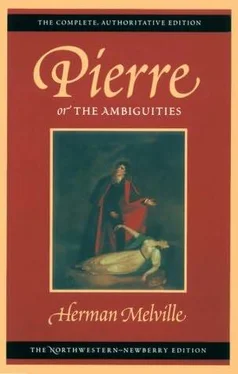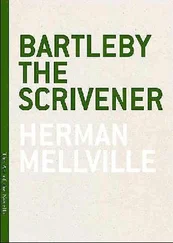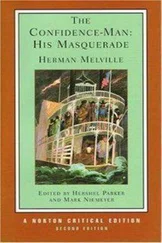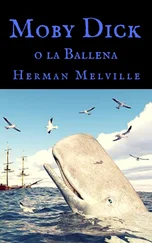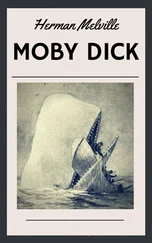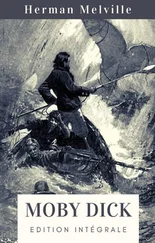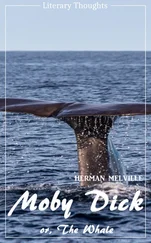Herman Melville - Pierre, Or the Ambiguities
Здесь есть возможность читать онлайн «Herman Melville - Pierre, Or the Ambiguities» весь текст электронной книги совершенно бесплатно (целиком полную версию без сокращений). В некоторых случаях можно слушать аудио, скачать через торрент в формате fb2 и присутствует краткое содержание. Жанр: Классическая проза, на английском языке. Описание произведения, (предисловие) а так же отзывы посетителей доступны на портале библиотеки ЛибКат.
- Название:Pierre, Or the Ambiguities
- Автор:
- Жанр:
- Год:неизвестен
- ISBN:нет данных
- Рейтинг книги:4 / 5. Голосов: 1
-
Избранное:Добавить в избранное
- Отзывы:
-
Ваша оценка:
- 80
- 1
- 2
- 3
- 4
- 5
Pierre, Or the Ambiguities: краткое содержание, описание и аннотация
Предлагаем к чтению аннотацию, описание, краткое содержание или предисловие (зависит от того, что написал сам автор книги «Pierre, Or the Ambiguities»). Если вы не нашли необходимую информацию о книге — напишите в комментариях, мы постараемся отыскать её.
Pierre, Or the Ambiguities — читать онлайн бесплатно полную книгу (весь текст) целиком
Ниже представлен текст книги, разбитый по страницам. Система сохранения места последней прочитанной страницы, позволяет с удобством читать онлайн бесплатно книгу «Pierre, Or the Ambiguities», без необходимости каждый раз заново искать на чём Вы остановились. Поставьте закладку, и сможете в любой момент перейти на страницу, на которой закончили чтение.
Интервал:
Закладка:
So Pierre went up-stairs, but paused on the threshold of the open door. He never had entered that chamber but with feelings of a wonderful reverentialness. The carpet seemed as holy ground. Every chair seemed sanctified by some departed saint, there once seated long ago. Here his book of Love was all a rubric, and said-Bow now, Pierre, bow. But this extreme loyalty to the piety of Love, called from him by such glimpses of its most secret inner shrine, was not unrelieved betimes by such quickenings of all his pulses, that in fantasy he pressed the wide beauty of the world in his embracing arms; for all his world resolved itself into his heart's best love for Lucy.
Now, crossing the magic silence of the empty chamber, he caught the snow-white bed reflected in the toilet-glass. This rooted him. For one swift instant, he seemed to see in that one glance the two separate beds-the real one and the reflected one-and an unbidden, most miserable presentiment thereupon stole into him. But in one breath it came and went. So he advanced, and with a fond and gentle joyfulness, his eye now fell upon the spotless bed itself, and fastened on a snow-white roll that lay beside the pillow. Now he started; Lucy seemed coming in upon him; but no-'tis only the foot of one of her little slippers, just peeping into view from under the narrow nether curtains of the bed. Then again his glance fixed itself upon the slender, snow-white, ruffled roll; and he stood as one enchanted. Never precious parchment of the Greek was half so precious in his eyes. Never trembling scholar longed more to unroll the mystic vellum, than Pierre longed to unroll the sacred secrets of that snow-white, ruffled thing. But his hands touched not any object in that chamber, except the one he had gone thither for.
"Here is the blue portfolio, Lucy. See, the key hangs to its silver lock;-were you not fearful I would open it? — 'twas tempting, I must confess."
"Open it!" said Lucy-"why, yes, Pierre, yes; what secret thing keep I from thee? Read me through and through. I am entirely thine. See!" and tossing open the portfolio, all manner of rosy things came floating from it, and a most delicate perfume of some invisible essence.
"Ah! thou holy angel, Lucy!"
"Why, Pierre, thou art transfigured; thou now lookest as one who-why, Pierre?"
"As one who had just peeped in at Paradise, Lucy; and-"
"Again wandering in thy mind, Pierre; no more.-Come, you must leave me, now. I am quite rested again. Quick, call my aunt, and leave me. Stay, this evening we are to look over the book of plates from the city, you know. Be early;- go now, Pierre."
"Well, good-bye, till evening, thou height of all delight."
VII
As Pierre drove through the silent village, beneath the vertical shadows of the noon-day trees, the sweet chamber scene abandoned him, and the mystical face recurred to him, and kept with him. At last, arrived at home, he found his mother absent; so passing straight through the wide middle hall of the mansion, he descended the piazza on the other side, and wandered away in reveries down to the river bank.
Here one primeval pine-tree had been luckily left standing by the otherwise unsparing woodmen, who long ago had cleared that meadow. It was once crossing to this noble pine, from a clump of hemlocks far across the river, that Pierre had first noticed the significant fact, that while the hemlock and the pine are trees of equal growth and stature, and are so similar in their general aspect, that people unused to woods sometimes confound them; and while both trees are proverbially trees of sadness, yet the dark hemlock hath no music in its thoughtful boughs; but the gentle pine-tree drops melodious mournfulness.
At its half-bared roots of sadness, Pierre sat down, and marked the mighty bulk and far out-reaching length of one particular root, which, straying down the bank, the storms and rains had years ago exposed.
"How wide, how strong these roots must spread! Sure, this pine-tree takes powerful hold of this fair earth! Yon bright flower hath not so deep a root. This tree hath outlived a century of that gay flower's generations, and will outlive a century of them yet to come. This is most sad. Hark, now I hear the pyramidical and numberless, flame-like complainings of this Eolean pine;-the wind breathes now upon it:- the wind, — that is God's breath! Is He so sad? Oh, tree! so mighty thou, so lofty, yet so mournful! This is most strange! Hark! as I look up into thy high secrecies, oh, tree, the face, the face, peeps down on me! — 'Art thou Pierre? Come to me'-oh, thou mysterious girl, — what an ill-matched pendant thou, to that other countenance of sweet Lucy, which also hangs, and first did hang within my heart! Is grief a pendant then to pleasantness? Is grief a self-willed guest that will come in? Yet I have never known thee, Grief;-thou art a legend to me. I have known some fiery broils of glorious frenzy; I have oft tasted of revery; whence comes pensiveness; whence comes sadness; whence all delicious poetic presentiments;-but thou, Grief! art still a ghost-story to me. I know thee not, — do half disbelieve in thee. Not that I would be without my too little cherished fits of sadness now and then; but God keep me from thee, thou other shape of far pro-founder gloom! I shudder at thee! The face! — the face! — forth again from thy high secrecies, oh tree! the face steals down upon me. Mysterious girl! who art thou? by what right snatchest thou thus my deepest thoughts? Take thy thin fingers from me;-I am affianced, and not to thee. Leave me! — what share hast thou in me? Surely, thou lovest not me? — that were most miserable for thee, and me, and Lucy. It can not be. What, who art thou? Oh! wretched vagueness-too familiar to me, yet inexplicable, — unknown, utterly unknown! I seem to founder in this perplexity. Thou seemest to know somewhat of me, that I know not of myself, — what is it then? If thou hast a secret in thy eyes of mournful mystery, out with it; Pierre demands it; what is that thou hast veiled in thee so imperfectly, that I seem to see its motion, but not its form? It visibly rustles behind the concealing screen. Now, never into the soul of Pierre, stole there before, a muffledness like this! If aught really lurks in it, ye sovereign powers that claim all my leal worshipings, I conjure ye to lift the veil; I must see it face to face. Tread I on a mine, warn me; advance I on a precipice, hold me back; but abandon me to an unknown misery, that it shall suddenly seize me, and possess me, wholly, — that ye will never do; else, Pierre's fond faith in ye-now clean, untouched-may clean depart; and give me up to be a railing atheist. Ah, now the face departs. Pray heaven it hath not only stolen back, and hidden again in thy high secrecies, oh, tree! But 'tis gone-gone-entirely gone; and I thank God, and I feel joy again; joy, which I also feel to be my right as man; deprived of joy, I feel I should find cause for deadly feuds with things invisible. Ha! a coat of iron-mail seems to grow round, and husk me now; and I have heard, that the bitterest winters are foretold by a thicker husk upon the Indian corn; so our old farmers say. But 'tis a dark similitude. Quit thy analogies; sweet in the orator's mouth, bitter in the thinker's belly. Now, then, I'll up with my own joyful will; and with my joy's face scare away all phantoms:-so, they go; and Pierre is Joy's, and Life's again. Thou pine-tree! — henceforth I will resist thy too treacherous persuasiveness. Thou'lt not so often woo me to thy airy tent, to ponder on the gloomy rooted stakes that bind it. Hence now I go; and peace be with thee, pine! That blessed serene-ness which lurks ever at the heart of sadness-mere sadness- and remains when all the rest has gone;-that sweet feeling is now mine, and cheaply mine. I am not sorry I was sad, I feel so blessed now. Dearest Lucy! — well, well;-'twill be a pretty time we'll have this evening; there's the book of Flemish prints-that first we must look over; then, second, is Flaxman's Homer-clear-cut outlines, yet full of unadorned barbaric nobleness. Then Flaxman's Dante;-Dante! Night's and Hells poet he. No, we will not open Dante. Methinks now the face-the face-minds me a little of pensive, sweet Francesca's face-or, rather, as it had been Francesca's daughters face-wafted on the sad dark wind, toward observant Virgil and the blistered Florentine. No, we will not open Flaxman's Dante. Francesca's mournful face is now ideal to me. Flaxman might evoke it wholly, — make it present m lines of misery-bewitching power. No! I will not open Flaxman s Dante! Damned be the hour I read in Dante! more damned than that wherein Paolo and Francesca read in fatal Launcelot!"
Читать дальшеИнтервал:
Закладка:
Похожие книги на «Pierre, Or the Ambiguities»
Представляем Вашему вниманию похожие книги на «Pierre, Or the Ambiguities» списком для выбора. Мы отобрали схожую по названию и смыслу литературу в надежде предоставить читателям больше вариантов отыскать новые, интересные, ещё непрочитанные произведения.
Обсуждение, отзывы о книге «Pierre, Or the Ambiguities» и просто собственные мнения читателей. Оставьте ваши комментарии, напишите, что Вы думаете о произведении, его смысле или главных героях. Укажите что конкретно понравилось, а что нет, и почему Вы так считаете.
